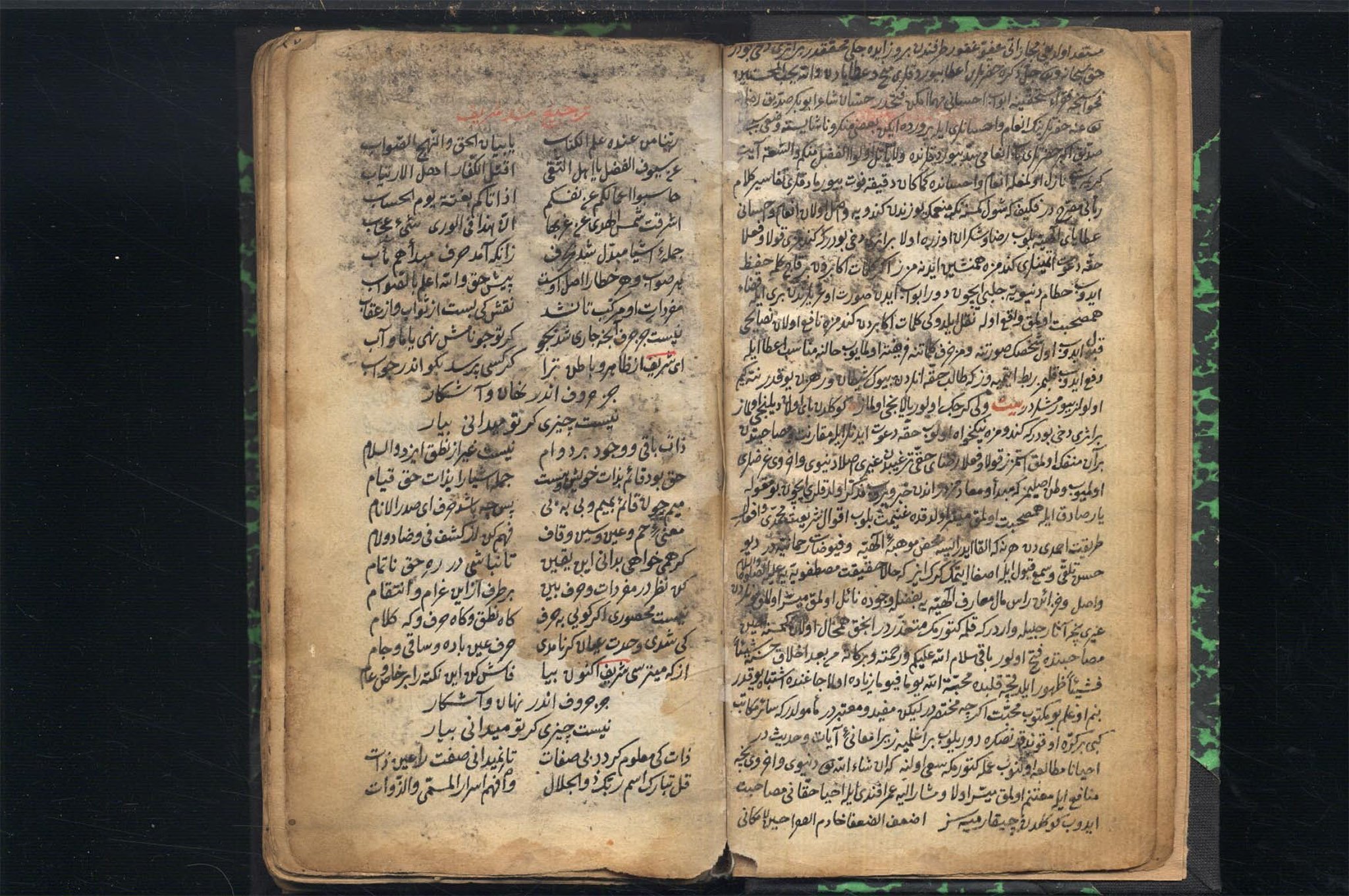
HUSEIN LAMEKANI
Author: Shaykh, assist. prof. Edin Urjan Kukavica, PhD, Faculty of Educational Sciences of University of Sarajevo, shaykh of Naqshbandi and Rifa’i tariqas • Illustration: Stihovi Lamekanija u rukopisnoj zbirci broj 3049 u Gazi Husrev-begovoj biblioteci

While discussing a ghazal by shaykh Husein Lamekani (k.s., passed away in 1034 Hijri year/1625 A.D.) written in Persian, Slobodan Ilić writes that “in the manuscript of a magmua from the 17th century which is held at the Gazi Husrev-beg Library in Sarajevo, call number 3049, there are over seventy poems, mostly ghazals, which were written by Husein Lamekani” and that he is “besides the commentator of Ibn al-Arabi’s Pearls of Wisdom, Abdullah Bošnjak, our most significant representative of the tasawwuf poetic expression”. His entire poetry is permeated with wondering about the way of knowing the universe, with variations pertaining to the transiency and nothingness of earthly life and focus on a single Truth. The primary feature of his style is a mystical-symbolic and allegorical experience, and he left behind a complete diwan and a satirical poem.
The available data on his life are scarce and very contradictory and therefore it is not reliably known even where he was born. According to some sources he was born in Pest as a descendant of Bosniaks, and according to others somewhere in Bosnia. The only fact that is beyond any doubt is that he spent most part of his life in Istanbul as a shaykh of a tekke in the courtyard of Shah Sultane-masjid and that he was involved in irshad (teaching, guiding and initiating dervishes) during his whole life. He was buried in the courtyard of the same mosque when he died on 21 Rabi al-Awwal 1035 Hijri year, i.e. on 21 December 1625 A.D.
He wrote under several pen names (mahlas), the most frequent one being Lamekani (Placeless), although h sometimes also called himself Lazemani (Timeless) and Huseini, Husami or Husam. His real name could have been Husamuddin, judging by the inscription in Arabic above one of his poems: “Li-ra’-isi ahli t-tariqati hadrati Husamiddini š-šahiri bi-La-makani r-Rumi mawlidan wa l-Bayrami mašraban” (By the leader of members of the order of hazreti Husamuddin, Rumelian by origin and Bayrami by orientation).
All Lamekani’s verses are in Ottoman Turkish except for a ghazal of seven distichs in Persian, which testifies of Lamekani’s sound knowledge of this Oriental language and it is surprising that he did not leave more such poems:
1 It revealed by heart and still reveals treasuries of tender heart
If the Most High helps, I will help the hearts.
2 Since my pir, the secret of these hearts, with his action and mercy,
Did good, he has become the essence to all humankind.
3 I am so filled with delight, ecstasy and states,
Not a trace has been left from me, I cannot understand all this.
4 by praising God my body has become a Divine key
Which open locks of all gates by the provision of Truth.
5 I then do not recognize my own existence, it
It left me and went to Non-Place, showed its face to others.
6 Therefore the Placeless became my name in the world of this time
Generally, Non-Place Is the Truth (Haqq), which time cannot know.
7 Come, do not be absent and leave God, always stay present in him
If you want His presence, give up looking at the earth.
Writing a seminal work about literature of Bosniaks in Oriental languages, Hazim Šabanović mostly dealt with establishing his origin and primarily confirmed his very high position among all the Bosniaks who wrote in Oriental languages positioning him among the three most significant authors (Abdullah Bošnjak, Husein Lamekani and Ahmed Vahdeti). He wrote the following about Husein Lamekani: “His name is recorded in all Ottoman-Turkish biographical works … Sources do not agree about the origin of this poet. ‘Ata’i (Zayl-i Šaka’ik) claims that he was born in Pest, Katib Čelebi (Fezleke) that he is a Bošnjak, while Ayvansarayi (Vafayat) writes that Lamekani was born in Hurpište, in the former sanjak of Bitola. Judging by the most reliable studies, Lamekani is still a Bosniak (Bosnali), perhaps born in Pest. Still, on the other hand, one must take into account the similarity in writing words Bosnia and Pest in Arabic-Turkish script; besides, it is well-known that at the time, Unđurovina (Turkish Hungary) was mostly inhabited by Bosniaks.ˮ
Emina Memija and Lamija Hadžiosmanović in Antologija bošnjačke poezije na orijentalnim jezicima (Anthology of Bosniak Poetry in Oriental Languages) offer translation of three Lamekani’s poems, here rendered in English:
When You are everything, and everything is law
what is this world,
a sunflower or flight of a bubble?
I searched for a long time, learned from myself
But found nothing except You.
What is a worry, what is fear?
Where do thoughts which create unrest surge?
Everything is dust, everything is a breath
transience which streaks the universe.
In this deception, I ask,
Where is the place of man’s life?
‘Without Him, without law, I often read
‘The man would also cease to exist’.

